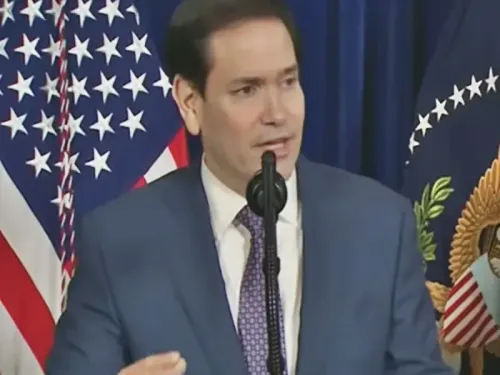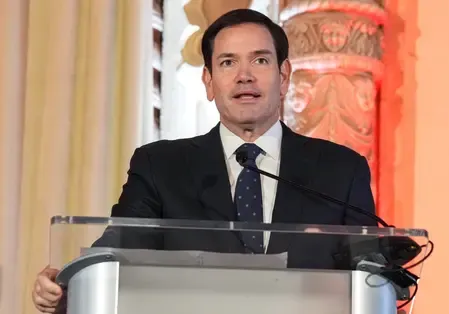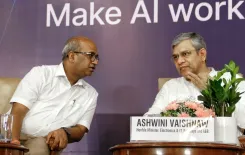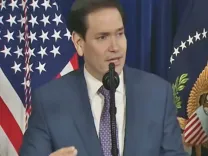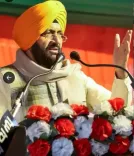How Did Acharya Vinoba Bhave Inspire the Vision of a Viksit Bharat? PM Modi Reflects on His Birth Anniversary
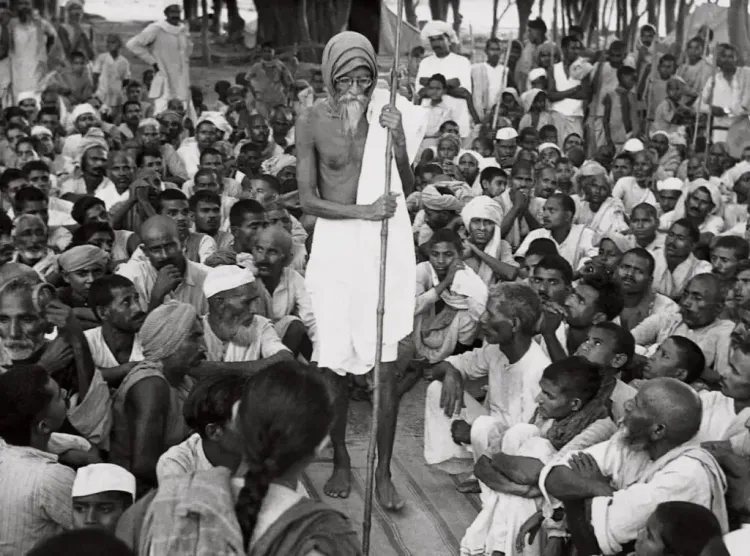
Synopsis
Key Takeaways
- Acharya Vinoba Bhave was a key figure in advocating for non-violence and social justice.
- He led the Bhoodan Movement for land redistribution.
- His teachings continue to inspire the vision of a Viksit Bharat.
- Bhave was a close associate of Mahatma Gandhi.
- His life exemplifies the importance of compassion and service to society.
New Delhi, Sep 11 (NationPress) Prime Minister Narendra Modi on Thursday paid heartfelt tributes to social reformer Acharya Vinoba Bhave on his birth anniversary, characterizing him as a lasting source of inspiration for constructing a 'Viksit Bharat'.
Vinayak Narahar Bhave, born on September 11, 1895, was a passionate advocate of non-violence and human rights.
Revered as Acharya, he is most notably recognized for leading the Bhoodan Movement, which aimed at land redistribution to promote social justice.
In a post on X, PM Modi remarked, "Paying homage to Acharya Vinoba Bhave on his birth anniversary. He is cherished as one of India's most esteemed spiritual leaders, freedom fighters, and social reformers. His life was dedicated to popularizing Gandhian ideals and empowering the marginalized. His thoughts greatly motivate us in our quest for building a Viksit Bharat."
Defence Minister Rajnath Singh also honored Bhave, stating, "On the birth anniversary of Acharya Vinoba Bhave Ji, the great thinker and social reformer of India, I extend my respectful homage to him. Through the Bhoodan Movement, he laid the groundwork for social justice and equality. His principles, rooted in compassion, non-violence, and selfless service, will eternally inspire nation-building."
The Congress party also paid tribute, asserting, "On Acharya Vinoba Bhave's birth anniversary, we honor the leader of the Bhoodan Movement. His life exemplified simplicity, compassion, and non-violence, serving as a timeless inspiration for social justice, land reforms, and collective harmony in India."
Bhave, often referred to as the National Teacher of India and the spiritual successor of Mahatma Gandhi, was also a prominent philosopher. He translated the Bhagavad Gita into Marathi, naming it 'Geetai'.
His connection with Gandhi began in 1916 when, on his way to sit for his intermediate examination in Bombay, Bhave burned his school and college certificates after being inspired by a newspaper article about Gandhi's speech at the newly established Banaras Hindu University.
He subsequently corresponded with Gandhi, and after several letters, Gandhi invited him to meet in person at Kochrab Ashram in Ahmedabad. Their meeting on June 7, 1916, was transformative, leading Bhave to forsake his formal education and commit to Gandhi's vision.
At Sabarmati Ashram, Bhave immersed himself in teaching, studying, spinning, and uplifting the community's lives. His increasing involvement in Gandhi's constructive initiatives — ranging from Khadi and village industries to Nai Talim (new education), sanitation, and hygiene — solidified his position as one of Gandhi's most devoted followers and later as a prominent leader in India's social reform movements.



